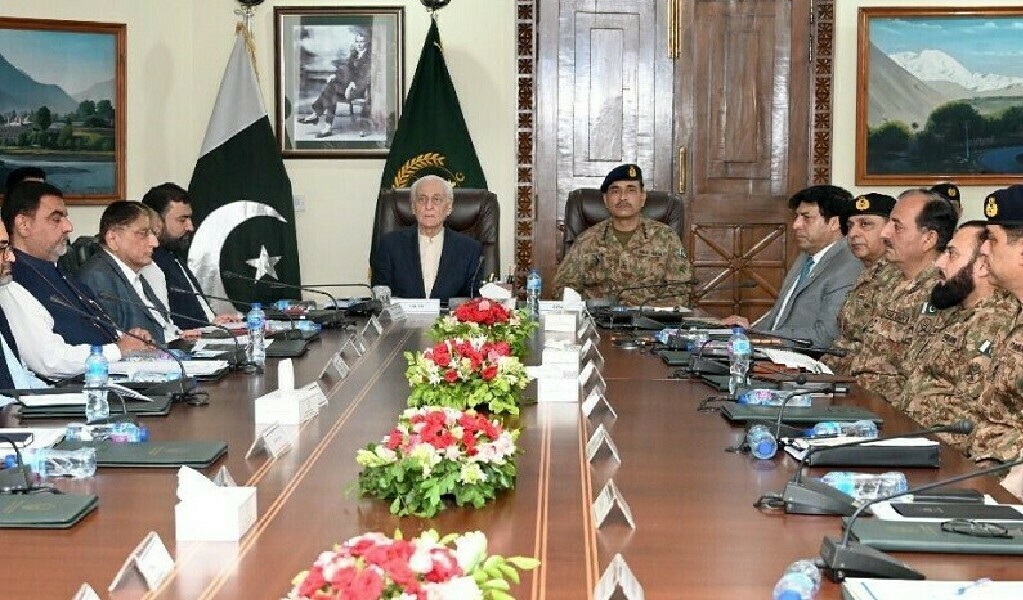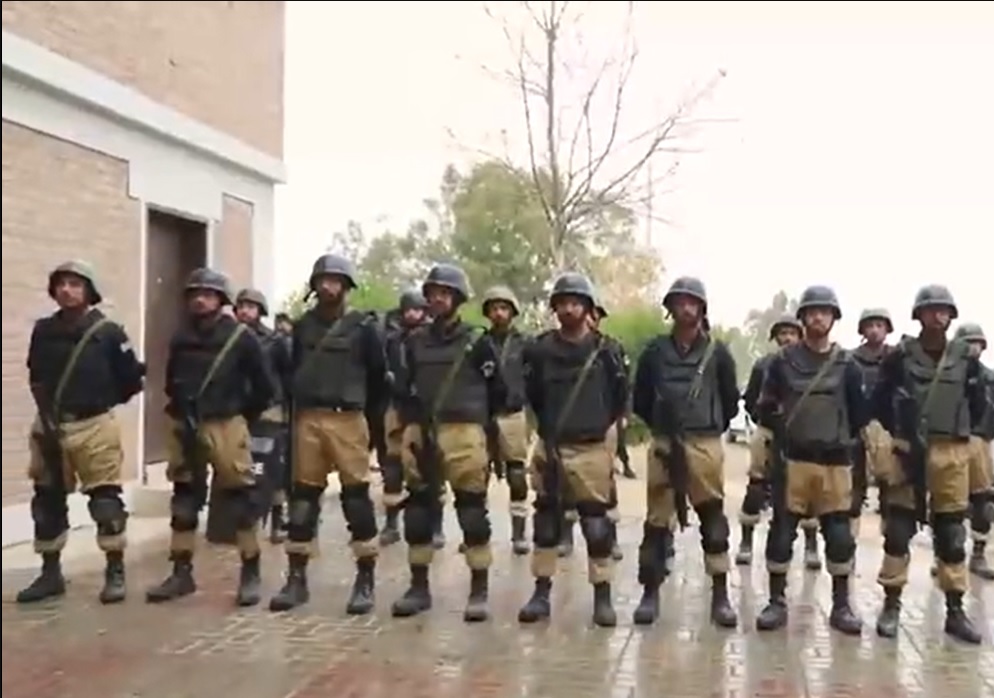Pakistani Security Forces’ operational successes against terrorism in Khyber Pakhtunkhwa
Shahzad Masood Roomi
At state level, a war is planned at four different tiers where critical decision making, in-depth analysis of these decisions and adjustments are made based on outcome of previous decisions. These are Grand Strategic, Strategic, Operational and Tactical tiers. Grand Strategic level is concerned with political leadership of a country which decides when to fight a war, if the state is initiating it. Strategic tier of decision making involves political and military leadership both where a strategic line of action is adopted. This becomes the primary tier of decision making if the state is attacked by the enemy. Last two tiers, operational and tactical belong purely to military domain. Operational commanders and unit commanders, in specific areas, are responsible for meeting operational and tactical objectives given to them. The outcome of their operations dictates the course of the entire war.
Juxtaposing Pakistan’s war on this categorization reveals astonishing accomplishments of Pakistan Army at strategic, operational, and tactical levels. Before going into details of operational successes of Pakistan army during the War on Terror, it would be prudent to understand that traditionally Pakistan army was raised and trained to fight against arch rival India in conventional warfare domain. Post 9/11 circumstances pushed Pakistan into the eye of geopolitical storm where threats of sub-conventional natures in the form of religiously motivated, well trained and equipped insurgent and terrorists group emerged at an exponential pace. They challenged the writ of the state, especially, in areas of Khyber Pakhtunkhwa (KP) which previously were known as FATA.
On the onset of this war, it had remained an excruciatingly prolonged period for the entire nation and its security forces. But as the time passed, Pakistan Army developed new and novel operational plans and tactical strategies to deal with this new kind of enemy in a war where the line between enemy combatant and own people were virtually removed. TTP’s local terrorist infrastructure was completely destroyed by the end of 2017 due to which large scale terrorism in Pakistan declined sharply. This success came at a tremendous human and financial cost as Pakistan Army had to adopt for this new role in an unseen territory along the Pak-Afghan border.
2021 was a watershed year in global war on terror when the US unilaterally announced to withdrew from Afghanistan leaving behind unconcluded War on Terror, insurgency and a country without any form of government. In order to get a safe exit, a peace deal was signed with Afghan Taliban. When Taliban took over Afghanistan, they needed manpower that can control the entire swathe of Afghanistan. This new need and ethnic ties helped TTP fighters who were on the run become new foot soldiers of Afghan Taliban. Soon after ceasing control of Afghanistan, this new Afghan govt began to retreat from their promises of not allowing Afghan soil to be used against any neighboring country. By 2022, TTP was back in KP as there was practically no check on these terrorists from Afghan side which previously were manned by either Afghan National Army or NATO troops. With TTP’s return, terrorism surged in Pakistan after many years and 2023 proved to be a challenging year for the state.
This time, TTP was even more equipped due to backing of Afghan government and weapons left behind by the US. Pakistan Army witnessed worst ambush and IED attacks in years. Situation was analyzed at strategic level by political and military leadership of KP. On September 27th 2023, COAS stressed the need to  synergize the efforts to bring peace and stability in KP while participating in KP Apex Committee meeting in Peshawar. Pakistan Army extended its already ongoing training program for KP police to enhance its abilities to fight modern terrorists and insurgents in the province. By November 2023, about 23,792 police officials were provided professional training in five different phases by the renowned instructors of Pakistan Army. Besides, over 600 police officials have been provided with SSG specialized training, 300 officials master training and 34 officials IED’s defusing training. This way Pakistan Army not only adopted new methods and operational approach but also helped KP police to achieve the same by providing them training for handling advanced weapons, communication gears, and tools to diffuse explosives. These efforts by Pakistan Army are in line with the vision of COAS about synergizing efforts against terrorists.
synergize the efforts to bring peace and stability in KP while participating in KP Apex Committee meeting in Peshawar. Pakistan Army extended its already ongoing training program for KP police to enhance its abilities to fight modern terrorists and insurgents in the province. By November 2023, about 23,792 police officials were provided professional training in five different phases by the renowned instructors of Pakistan Army. Besides, over 600 police officials have been provided with SSG specialized training, 300 officials master training and 34 officials IED’s defusing training. This way Pakistan Army not only adopted new methods and operational approach but also helped KP police to achieve the same by providing them training for handling advanced weapons, communication gears, and tools to diffuse explosives. These efforts by Pakistan Army are in line with the vision of COAS about synergizing efforts against terrorists.
On the tactical level, Pakistan Army has matured its drone warfare as well and is using emerging new age technologies like UCAVs, AI, and Net-centric warfare to thwart terrorists’ attacks in KP. During the recent months, Pakistan Army used its homegrown quadcopter-based UCAV system against terrorists who were trying to infiltrate Pak-Afghan border. Similarly, new night vision cameras and motion detection sensors are being installed on check posts at important locations and these actions are paying dividend by saving lives of Pakistan Army troops.
According to ISPR, in 2023, at least 566 terrorists were neutralized during 18,736 intelligence-based operations (IBOs) executed by security forces across the country. Most importantly, these IBOs also resulted in the arrest of 5,161 terrorists. The evidence of recent terrorist incidents was traced back to sanctuaries in Afghanistan where TTP and Afghan Taliban government both acting as hostile forces towards Pakistan particularly during the recent month. The sheer number of IBOs during the last year highlights the operational readiness of security forces. Another important feature of these IBO is the fact that maximum number of terrorists (447) were eliminated in KP in 1,942 IBOs while 206 sons of soil gave ultimate sacrifice for the peace and stability in the motherland. Nation salutes to these brave hearts and will remain indebted to them forever. The immediate impact of these operations is a clear decline in security related incidents during the first 4 months of 2024.
Pakistan Army is fighting this war with blood and sweat in an effort to create space for political leadership to provide much needed socio-economic relief in KP. The menace of foreign funded and aided terrorism can be fought only through a whole of the nation efforts so that the operational brilliance of Pakistan’s security forces can be translated into strategic gain for the KP and Pakistan. The time is not far when Pakistan will achieve this dream of lasting peace and stability in the country. Insha Allah.





